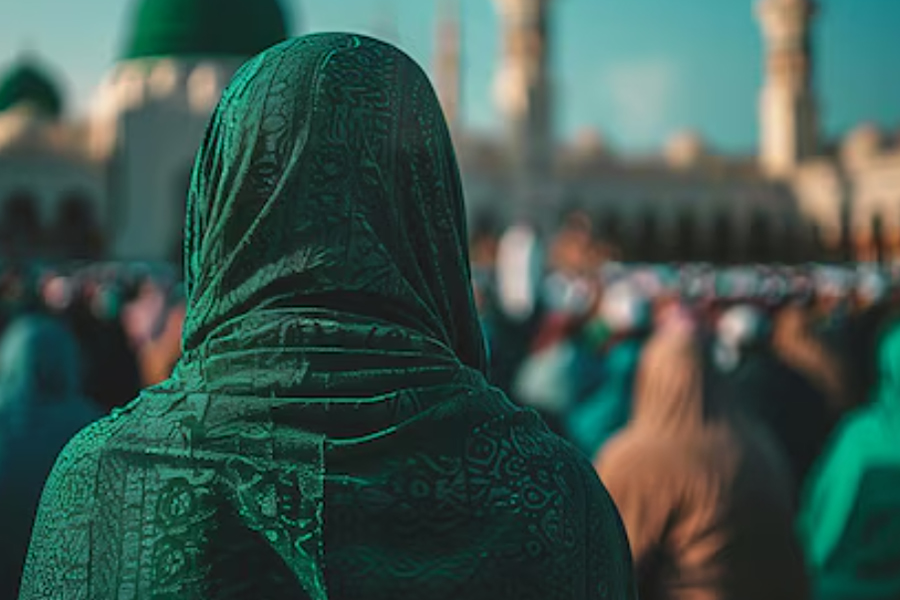Praise be to Allah
Summary
It is Not Permissble for a woman to lead eid salah, even if it is a women congregation. This prohibition is not a reflection of women’s capabilities but rather adherence to the command of Allah and the Prophet Muhammad (ﷺ).
Detailed Answer
In Islam, the leadership of the Eid prayer is specifically designated to men. This practice is rooted in the teachings and traditions of the Prophet Muhammad (ﷺ) and is consistently upheld by Islamic scholars and jurisprudence.
Basis from the Sunnah
The Prophet Muhammad (ﷺ) himself led the Eid prayers and appointed men to lead them in his absence. There is no recorded instance in the authentic traditions (Ahadith) where a woman led the Eid prayer, indicating the established practice of male leadership for this significant act of worship.
Relevant Hadith
Several hadith provide guidance on this matter:
General Principle of Prayer Leadership: Abu Mas’ud al-Ansari reported that the Prophet Muhammad (ﷺ) said:
“The people should follow the imam and he should be the last one to bow and the last one to prostrate”
(Sahih Muslim 414).
This hadith underscores the importance of following a male imam in congregational prayers, a practice that extends to the Eid prayer as well.
Women’s Role in Eid Gatherings: While women are encouraged to attend the Eid prayer, the leadership role remains with men. Umm Atiyah reported:
“The Messenger of Allah (ﷺ) commanded us to bring out on Eid al-Fitr and Eid al-Adha, the young women, hijab-observing adult women, and the menstruating women. The menstruating women were to avoid the prayer place but witness the goodness and the gatherings of the Muslims”
(Sahih al-Bukhari 971, Sahih Muslim 890).
This hadith shows that women participated in the Eid gatherings and benefited from the communal aspects, yet the leadership of the prayer was not assigned to them.
Islamic Jurisprudence
Islamic scholars have consistently interpreted these practices to mean that men should lead the Eid prayers. This interpretation is grounded in the established traditions and the consensus of scholars over centuries. The role of the imam in such significant prayers is linked to broader responsibilities within the community, which traditionally fall to men.
Wisdom Behind the Prohibition
The prohibition of women leading the Eid prayer is rooted in maintaining the structure and organization of Islamic worship as commanded by Allah and practiced by the Prophet Muhammad (ﷺ) and his companions. It is not a reflection of the capabilities of women but rather a matter of adhering to the command of Allah and the Prophet Muhammad (ﷺ). Women have significant roles in other areas of Islamic life, including education, scholarship, and family responsibilities, which are highly valued and respected.
Conclusion
The leadership of the Eid prayer by men is a practice rooted in the command of Allah and the Sunnah of the Prophet Muhammad (ﷺ) and upheld by Islamic jurisprudence. While women play crucial roles in many aspects of Islamic life and are encouraged to attend Eid prayers, the specific role of leading the Eid prayer is designated to men to maintain the tradition established by the Prophet Muhammad (ﷺ). This prohibition does not reflect on the capabilities of women but rather aligns with maintaining the established practices in Islam.
And Allah Knows Best
Was this helpful?
Leave Your Comments
© Copyright 2025, All Rights Reserved

